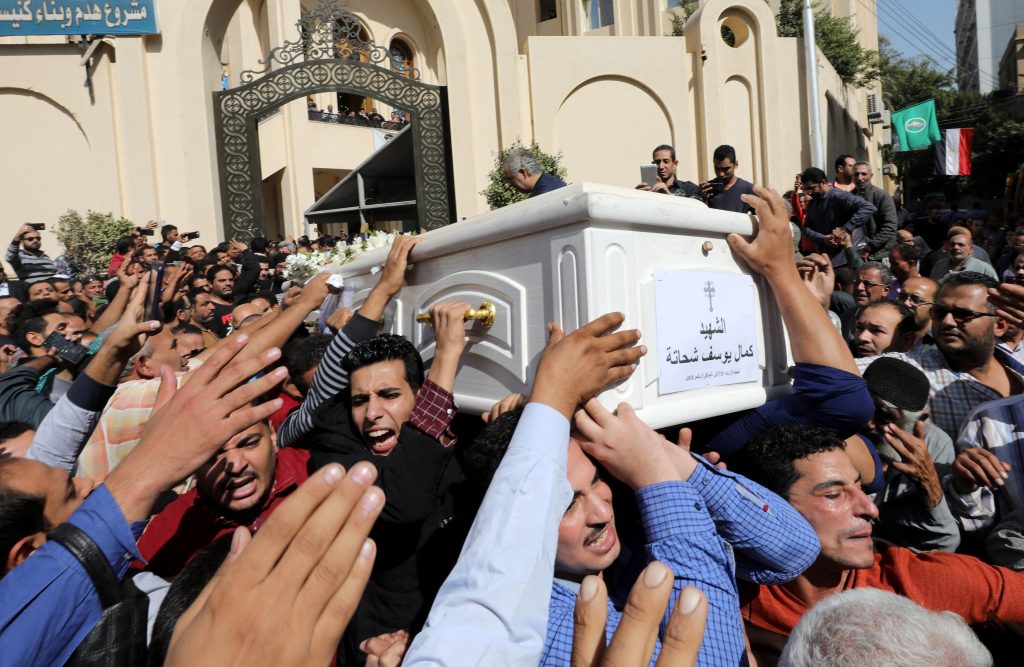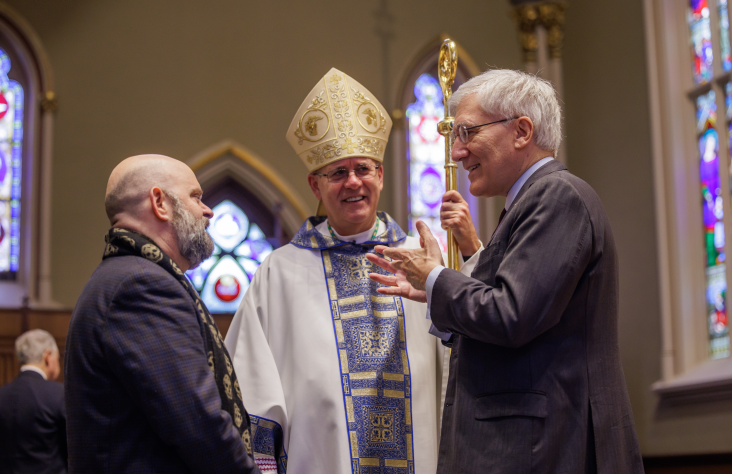November 7, 2018 // World News
News Briefs: November 11, 2018
Digital technology enhances religious education options for the blind
COCONUT CREEK, Fla. (CNS) — In relocating to this community north of Fort Lauderdale, Lygia Bohan thought she misplaced her beloved childhood Catholic prayer book, written in Braille. She hopes, for sentimental reasons, it will eventually turn up. Now a regular Massgoer at All Saints Parish in Sunrise, the New York native has been blind since childhood. She was born in an era when some premature babies were exposed to unregulated oxygen levels in their incubators, causing permanent damage to their sight. The condition is called retrolental fibroplasia and Terry syndrome. The oxygen therapy was used when a newborn child’s lungs were not fully developed. “In elementary school I went to Lavelle School for the Blind in the Bronx, and that is where I was taught about the Catholic religion,” Bohan said. “That is where they gave me a Braille prayer book. I loved that book. I must have lost it in the move some years ago.” Bohan reads along with the Sunday Mass and uses other Catholic publications prepared in Braille provided by the Xavier Society for the Blind. She also makes use of the array of digital communication tools that have enhanced modern life for everyone. “I listen to the radio, and on the internet I can get things,” she said. “I have an iPhone and can access audio programs there, things through streaming media.”
Panel examines low numbers of Latino students in Catholic schools
WASHINGTON (CNS) — If admitting there is a problem is half the battle, then Catholic leaders and educators are halfway there by talking about an issue that many find troubling: the small percentage of Latino children attending Catholic schools. The issue was highlighted two years ago in a Boston College report, “Catholic Schools in an Increasingly Hispanic Church,” which examined the disparity between the number of school-age children who are Hispanic and the number of these students — 2.3 percent — enrolled in Catholic schools. Although that number is now closer to 4 percent, it’s still a very small percentage and quite noticeable in a Church with a growing Hispanic population and at a time when Catholic schools are experiencing overall enrollment decline. Church and education leaders gathered at The Catholic University of America Oct. 30 to discuss this issue during an event sponsored by the university and America Media, the umbrella group for a group of Jesuit media platforms, including America magazine. The afternoon event included a luncheon, a closed panel discussion and a town hall meeting that was essentially preaching to the choir since many in the audience were Catholic educators, but its livestream broadcast gave it a broader reach.
New coordinating body for Catholic charismatic activities announced
VATICAN CITY (CNS) — The two international bodies that had been supporting and coordinating the international activities of charismatic Catholics will become one new organization. “Charis” will take over the roles previously played by the International Catholic Charismatic Renewal Service and the Catholic Fraternity of Charismatic Covenant Communities and Fellowships, the Vatican announced Oct. 31. The Dicastery for Laity, the Family and Life, which certifies international Catholic lay organizations, said Charis will begin operating Dec. 8. The two previous organizations will cease to exist June 9, Pentecost Sunday. “As a body in the service of all the realities of Catholic charismatic renewal,” the Vatican said, “Charis will not exercise any authority over these realities. Each single charismatic reality will remain as it is, fully respected in its own identity and under the jurisdiction of the ecclesiastical authority upon which it currently depends.”
Fidelity is for every vocation, not just marriage, pope says
VATICAN CITY (CNS) — The Sixth Commandment’s mandate against adultery is a call to fidelity that applies not only to married couples, but to all Christians called to love others through their vocation, Pope Francis said. Married men and women, priests and those in religious life are ultimately called to live out their vocation faithfully and follow the “path of love that goes from receiving care to the ability to offer care, from receiving life to the ability to give life,” the pope said Oct. 31 during his weekly general audience. “Every Christian vocation is spousal because it is the fruit of the bond of love in which we are all renewed, the bond of love with Christ,” he said. “Starting from (Christ’s) fidelity, his tenderness, his generosity, we look with faith at marriage and at every vocation, and we understand the full meaning of sexuality.” Among the pilgrims present at the audience were the members of the Together in Hope choir, an ecumenical choir comprised of Catholic, Lutheran, Anglican, Methodist, Reformed, evangelical, and nonreligious people based in Minneapolis. Accompanying the choir was Archbishop Bernard A. Hebda of St. Paul and Minneapolis, and Lutheran Bishop Ann Svennungsen, head of the Minneapolis Synod of the Evangelical Lutheran Church in America, who were greeted by Pope Francis after the audience.
High court to consider if 40-foot-cross war memorial endorses religion
WASHINGTON (CNS) — The Supreme Court announced Nov. 2 that it would hear oral arguments this term to consider if a 40-foot cross in Maryland endorses religion or is simply a secular memorial. The cross in question sits at a busy intersection in the Washington suburb of Bladensburg, Maryland, and memorializes soldiers who died in World War I. Last year, the 4th U.S. Circuit Court of Appeals based in Richmond, Virginia, ruled 2-1 that the 93-year-old monument is unconstitutional and must be removed or destroyed. “(It) has the primary effect of endorsing religion and excessively entangles the government in religion.” Known as the Bladensburg Cross or the Peace Cross, the cement and marble memorial was erected by the Snyder-Farmer Post of the American Legion of Hyattsville, Maryland, to recall the 49 men of Prince George’s County who died in World War I. The cross, whose construction was funded by local families, was dedicated July 13, 1925. The American Humanist Association, a Washington-based group that represents atheists and others, filed suit against the memorial because it is in the shape of a cross. It argued that having a religious symbol on government property violates the establishment clause of the First Amendment.
Pope: Christians can’t pick and choose witch neighbor to love
VATICAN CITY (CNS) — The commandment to love one’s neighbor does not mean Christians get to choose who gets help and who doesn’t, Pope Francis said. “It is not about pre-selecting my neighbor,” he said. “This isn’t Christian, it is pagan.” Christians must encounter everyone with the heart and eyes of Jesus, listening to and being near those in need, the pope said before reciting the Angelus Nov. 4 with people gathered in St. Peter’s Square. The pope reflected on the day’s Gospel reading (Mk 12:28-34) in which Jesus says the greatest of all the commandments is to “love the Lord, your God with all your heart, with all your soul, with all your mind, and with all your strength,” followed by the commandment to “love your neighbor as yourself.” The two commandments — like two sides of the same coin — cannot be separated and, therefore, must both be lived, the pope said.

Egyptian Christians carry the casket of a victim during a Nov. 3 funeral Mass outside Prince Tadros Orthodox Church in Minya for a group of pilgrims killed by gunmen as they headed to a monastery Nov. 2. (CNS/Mohamed Abd El Ghany, Reuters)
The best news. Delivered to your inbox.
Subscribe to our mailing list today.






